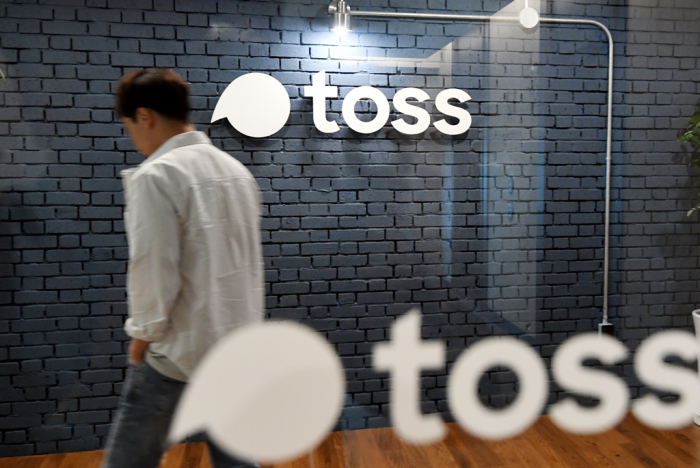Fintech
Korean fintech sector struggles amid liquidity drought
Financial difficulties in South Korea’s fintech industry are predicted to correct overvaluations in the sector
By Sep 20, 2022 (Gmt+09:00)
4
Min read
Most Read
LG Chem to sell water filter business to Glenwood PE for $692 million


Kyobo Life poised to buy Japan’s SBI Group-owned savings bank


KT&G eyes overseas M&A after rejecting activist fund's offer


StockX in merger talks with Naver’s online reseller Kream


Mirae Asset to be named Korea Post’s core real estate fund operator



A three-year-old South Korean fintech company is having trouble raising money through a Series B funding round as investor sentiment on the sector has soured. That compared with last year when investors had been lined up for the startup’s Series A round.
“We had planned to complete the fundraising by now, but we are still begging here and there,” said its chief executive, asking not to be identified. “If we fail to raise the funds by year-end, we will not be able to hire new employees but have to lay off some of the current staff.”
South Korea’s fintech sector is suffering from dried-up liquidity on rising interest rates and concerns over an economic downturn after enjoying a two-year boom, which skyrocketed their valuations to unsustainable levels.
Many fintech startups with financial difficulties tightened their belts by reducing recruitment, employee welfare and business trips.
Some of them, including unicorns whose corporate values are estimated at more than $1 billion, raised money through loans rather than funding rounds while reducing their valuations.
“Fintech names had been favorites among startups in the venture investment industry, which rapidly grew during COVID-19, so, the recent downturn is more severe to financial players,” said an industry source. “The time is coming to normalize their valuations and to separate the grain from the chaff.”
Investments in the global fintech startups fell 46% to $20.4 billion in the second quarter from a year earlier, according to market research firm CB Insights.
Global investments in fintech sector
Unit: billions of dollars
Source: CB Insights
Graphics by Jerry Lee
HEYDAY HAS GONE
The fintech industry had been the top beneficiary during the pandemic, which boosted demand for contactless financial services. Investors poured money into the sector, taking advantage of abundant liquidity provided by global central banks to save their economies from the fallout of the coronavirus disease. The boom ramped up the valuations of fintech startups.
The number of fintech startups worldwide reached 163 last year, while more than 30 companies in the sector such as Coinbase Global Inc., which operates the US largest cryptocurrency exchange platform, have gone public on the country’s stock markets since 2020, CB Insights data showed.
The situation dramatically changed this year as surging interest rates amid rampant inflation soured investor sentiment, dampening the sector. Shares in listed fintech players tumbled and unlisted companies faced financial trouble.
“Companies with higher valuations and those that need a lot of money face more difficulties in fundraising,” said a South Korean fintech startup’s head, citing a market talk that the local venture capital industry has already decided not to invest in new startups until the first half of next year.
MONEY FROM ANGEL INVESTORS, NON-BANK FINANCIAL INSTITUTIONS
Some fintech startups are raising tiny sums of money from angel investors, high-net-worth individuals who provide financial backing for small startups or entrepreneurs, as venture capital firms refrained from investments.
A fintech company with a decade of history is seeing money for operations running out as it failed to raise funds. Its chief executive told senior staff “we have only one month left to survive.”
The company discontinued a policy that allows employees to make business trips to check industry trends. It also slashed its welfare budget, including money earmarked to support staff education.
Unicorns were not an exception. Viva Republica Inc., the operator of fintech platform Toss, raised 530 billion won ($381.5 million) through a Series G funding round last month, about half of its initial forecast of 1 trillion won.
The unicorn expected such a downturn and already secured money through loans in March. Its loans nearly doubled to 613.6 billion won in the second quarter from a year earlier, led by a jump in short-term loans with maturities of one year or less. It borrowed 217.3 billion won from banks at floating rates and the rising borrowing costs are expected to ramp up its expenses. In addition, it took loans from non-bank financial institutions at higher interest rates.
TO CORRECT OVERVALUATIONS
The difficulties in the fintech sector are expected to correct the firms' overvaluations, which resulted from excessive investments, industry sources said.
Klarna, the Swedish payments firm, lowered its valuation to $6.7 billion to attract investments from the last year’s $45.6 billion.
“Many see the existing fintech startups’ valuations as excessive,” said a venture capital industry source in Seoul.
“Startups must prove their capabilities to immediately perform and streamline their management, rather than stress their growth potential.”
Write to Nan-Sae Bin and Jin-Woo Park at binthere@hankyung.com
Jongwoo Cheon edited this article.
More to Read
-
 Korean startupsKorean startups turn to restructuring amid liquidity concerns
Korean startupsKorean startups turn to restructuring amid liquidity concernsJul 11, 2022 (Gmt+09:00)
3 Min read
Comment 0
LOG IN


